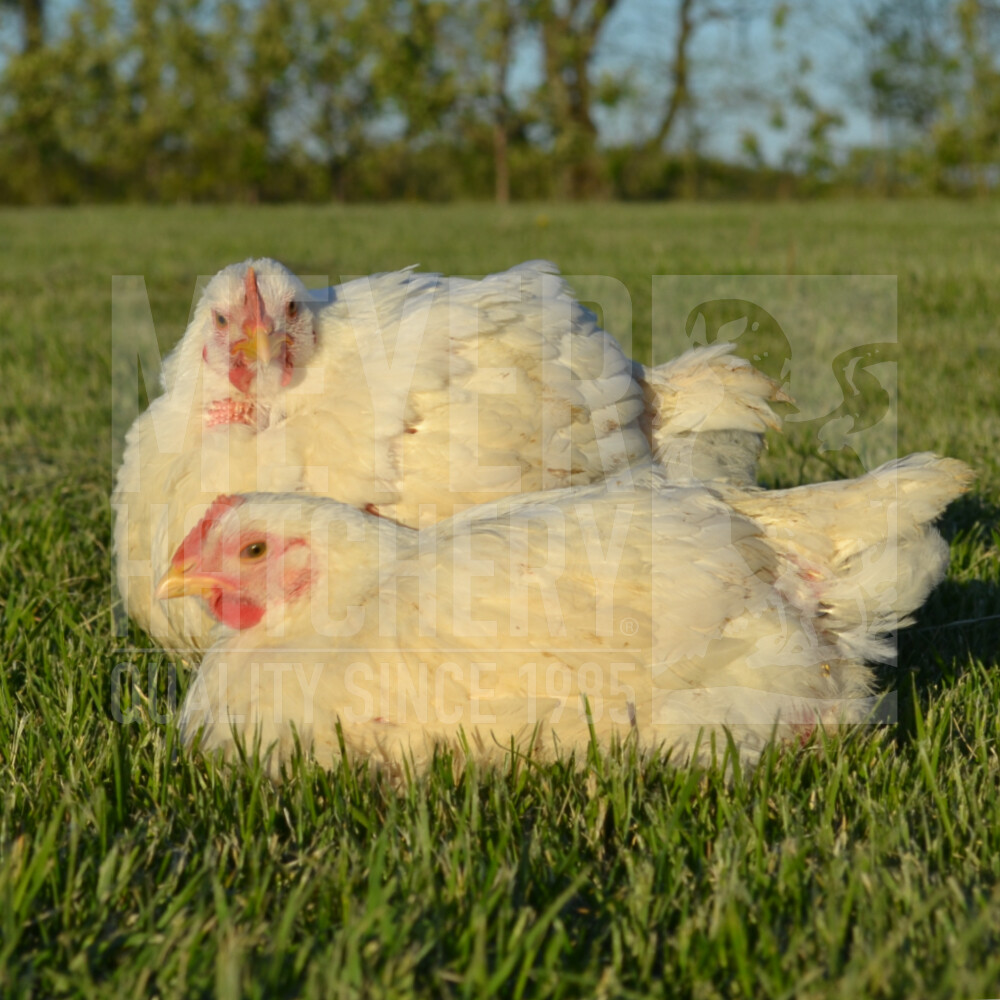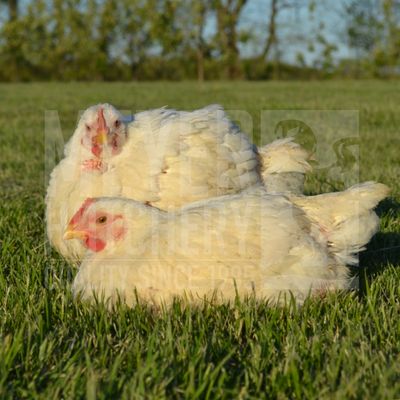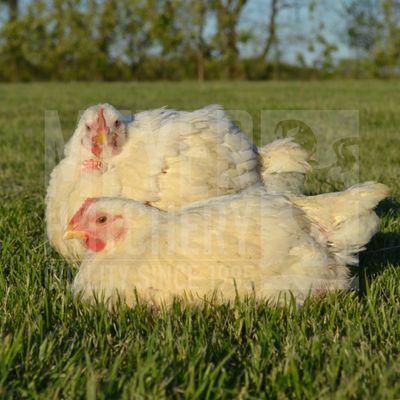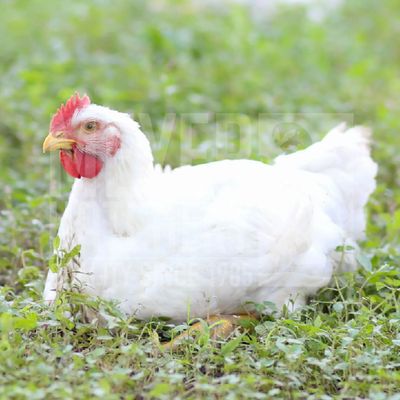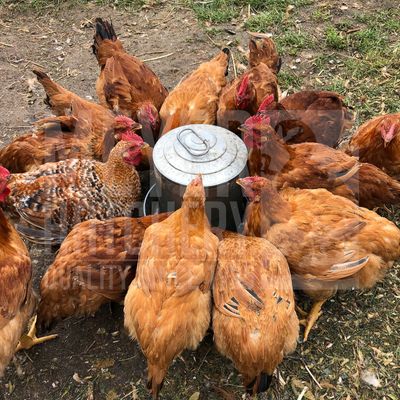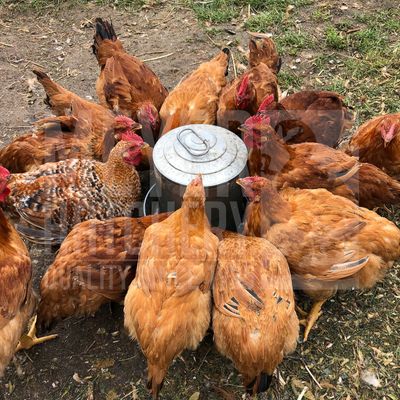Cornish Cross Broiler Day Old Chicks
| Quantity | Price per item | Discount |
| 11 items | $3.27 | 6% off |
| 25 items | $2.97 | 14% off |
| 50 items | $2.80 | 19% off |
| 100 items | $2.60 | 25% off |
| 250 items | $2.30 | 34% off |
Jumbo White Cornish Cross Broiler Day Old Chicks
Cornish Specific Care Instructions.
If you are looking for a fast-growing meat bird, our Jumbo White Cornish Cross Broilers should be your first choice. Also known as Cornish X, Cornish Cross, Cornish Rock Cross or White Broilers, these meat chickens will be ready for processing in just 7 to 8 short weeks. You can also process any gender at 2 lbs or 4 weeks for a tasty Cornish Game Hen. Meyer Hatchery’s first-generation stock have been selected for fast feathering, steady growth, optimal feed conversion ratios and broad breasts. Meyer Hatchery's Cornish Cross are typically the Ross 308 or Cobb 500 strain. Both strains have yellow legs, skin, and feathers (the Cobb may have black flecks). Other strains may be substituted or added to meet consumer demand as needed. Read more information about our Cornish Cross strains.
Cornish Cross are a special hybrid that we have fine-tuned over many generations specifically for fast growth rates for meat production. Because they are a hybrid, you cannot cross a male and female Cornish Cross and hatch out more Cornish Cross. Additionally, for their own health and well-being, Cornish Cross should not be kept beyond their processing age of 6-9 weeks.
Feed Recommendations: Meyer Hatchery recommends feeding your baby chicks 12 hours ON and 12 hours OFF starting at 1 week of age. This helps minimize the risk of heart and leg issues that can come with too rapid of growth. Feed 20% protein medicated chick starter for the first 3 weeks, then finish with an unmedicated 18% grower/broiler feed. Meyer recommends processing these birds at 7 to 9 weeks of age.
Estimated Growth Rate and Feed Consumption of Jumbo White Cornish Cross Boilers
| Age in Weeks | Average Processed Weight, lbs | Feed Consumption per week, lbs | Cumulative Feed Consumption, lbs | Feed/Gain |
| 1 | 0.34 | 0.30 | 0.30 | 0.88 |
| 2 | 0.85 | 0.62 | 0.92 | 1.08 |
| 3 | 1.54 | 1.02 | 1.94 | 1.26 |
| 4 | 2.38 | 1.44 | 3.38 | 1.42 |
| 5 | 3.34 | 1.90 | 5.28 | 1.58 |
| 6 | 4.37 | 2.32 | 7.60 | 1.74 |
| 7 | 5.40 | 2.73 | 10.33 | 1.91 |
| 8 | 6.42 | 3.10 | 13.43 | 2.09 |
These weights are estimates. Final results can vary depending on feed type and quality, health, free-range methods and other factors.
